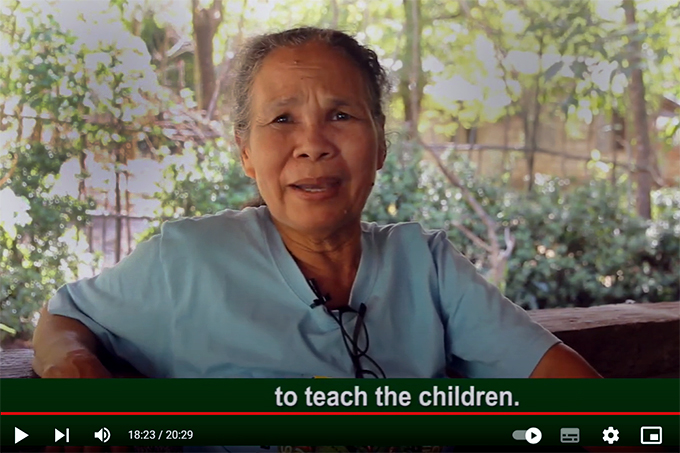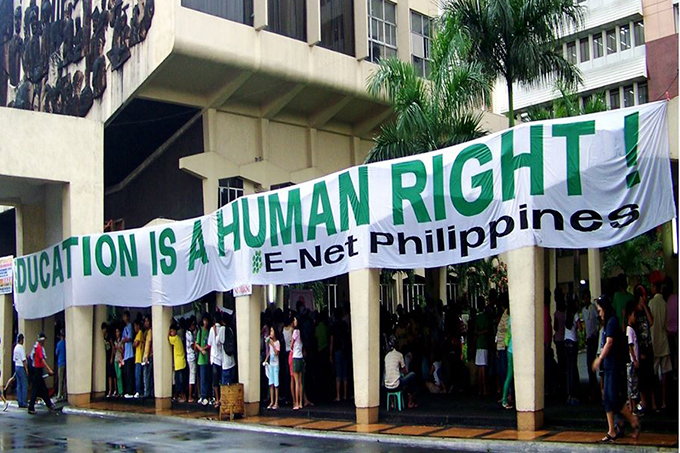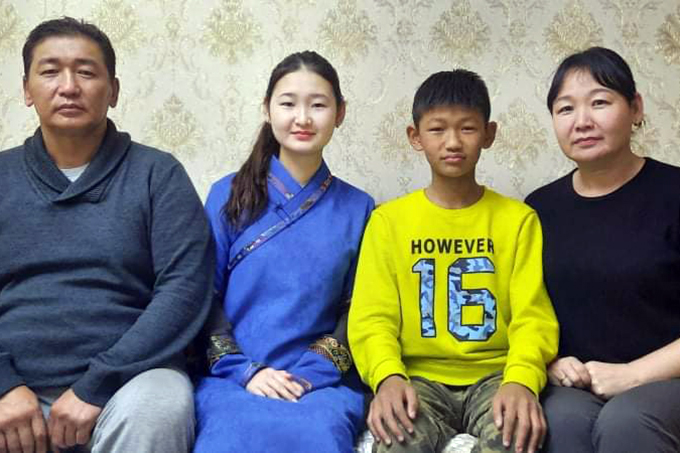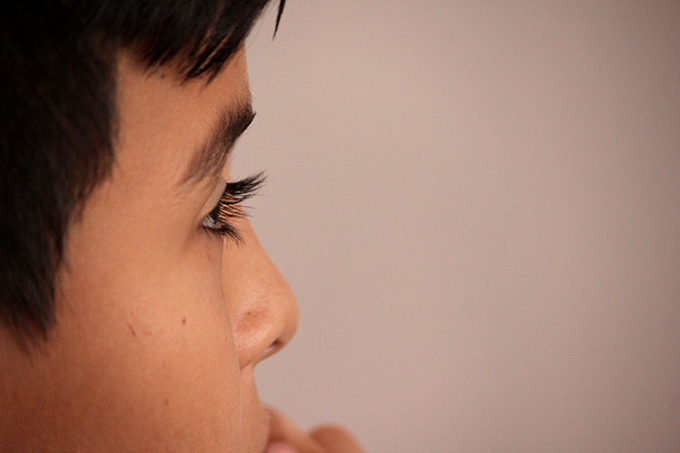Story of change: The power in being the narrator
AETA people
The Aeta live in the mountainous areas of Luzon in the Philippines. In 2015, the Aeta numbered 57,707 and lived mostly near Mount Pinatubo in Zambales Province. Traditionally, the Aeta are hunter-gatherers who build temporary shelters moving in small groups of 1–5 families. Today, the way of living of the Aeta is sustainable agriculture. They have their own customs, traditions, dances, music, sports, and survival skills.
“For us this film is a great achievement and something we are truly proud of as it is from end to end written, filmed, and edited by members of our own community. It is students from the Aeta high school who now have the skills to document and share our history and culture and the achievements we make as a people and that ability of being able to tell your own story is truly empowering,” says Ms. Helen Abarra who is one of the leaders in the Aeta organization LAKAS.
For years LAKAS have been fighting for the rights and recognition of the Aeta people who has formerly suffered severe marginalization and harassment followed by poverty and repression.
Together with Education Out Loud partner E-Net, they have won the right to their ancestral lands, gained some level of autonomy rule, and in 2013 implemented alternative education and ultimately established their very own high school built around their own indigenous knowledge and culture.
The power in telling the story
But despite these big wins, it has been a continuous struggle to have their story told and especially have it told in a way they found to be comprehensive and true.
The documentary
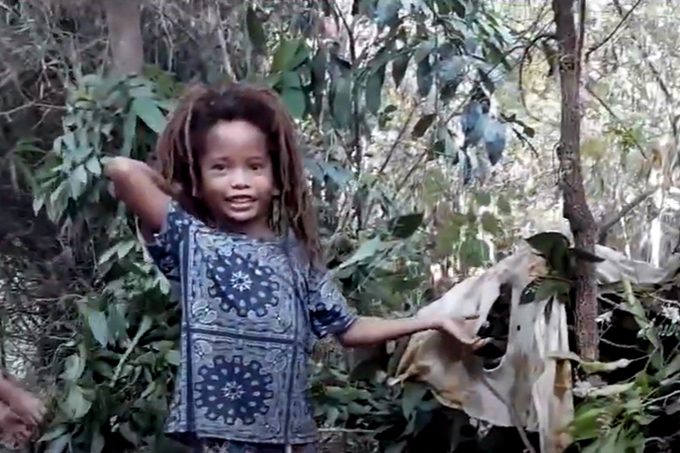
The first of the published films tells the story of the organization of the LAKAS community from the founding in March 1982, over the launch of the Literacy Program and to how the LAKAS community launched the Alternative Learning System. Later, the video tells how LAKAS advocated with the Department of Education and Local Government Units for the construction of their very own high school.
“Either indigenous peoples like the Aeta are invisible in society, or their presence is framed and narrated by others. Whenever mentioned in textbooks, or current reports or as part of policy making the wording doesn’t come directly from them. This is instrumental in the continuous marginalization of these peoples,” says Ms. Alve Berdan, who is coordinator of E-Net and a strong supporter of the viewpoint that empowerment comes with the ability to narrate your own story.
Therefore, besides continuing the financial and technical support to LAKAS in implementing and strengthening alternative education components in schools, E-Net has worked with LAKAS and the Aeta High School to strengthen documentation and communication skills.
“We would like to have a documentation of the achievements within education to be able to inspire other indigenous organizations and use the examples in our advocacy for alternative education that are appropriate for indigenous peoples. And in E-Net we were thrilled to learn that there was a group of students at the high school who really wanted to tell this story themselves and use it as an opportunity to learn the skills of script writing, acting, filming, and editing,” says Ms. Alve Berdan.
Hence, for the past two years, students have so far worked on three films that document the history of the Aeta people, the Aeta cultural practices and ancestral knowledge as well as the processes and results of implementing alternative education in the Aeta schools. The first one is the one yet published - the two others are on their way.
Empowerment of the youth
“From not being able to tell our own story to now having both some very important pieces of documentation and young members of our society that now master these technologies and techniques is truly empowering for the youth, who have been involved, and for us as a people,” says Ms. Helen Abarra.
The films will now be screened at a series of events in the Aeta community and edited versions will be used for various communication and advocacy purposes. Both E-Net and LAKAS will continue to support people in being able to tell their own stories.
History of LAKAS
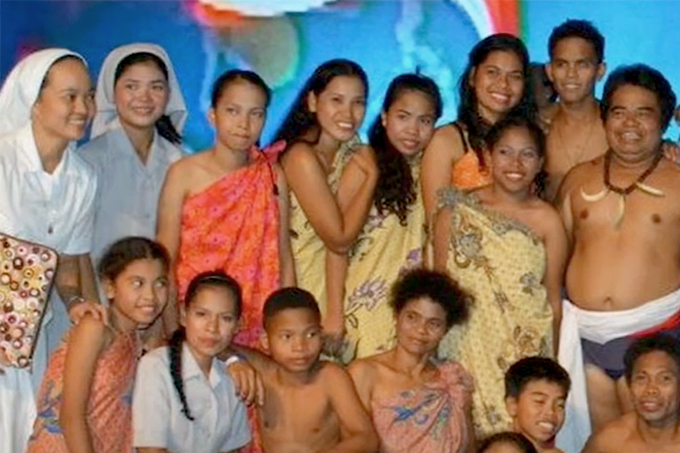
Lubos na Alyansa ng mga Katutubong Ayta sa Sambales (United Alliance of Aetas in Zambales)
- On March 1, 1982, LAKAS was organized and in partnership with the Franciscan Missionaries of Mary (FMM), a Literacy Program was launched wherein they were taught how to read, write, and count.
- After the Mt. Pinatubo eruption in June 1991, the Aetas were displaced from their Ancestral land and settled in a resettlement area. In 2010, with the help of Education for Life Foundation, they reclaimed their ancestral domain and started sustainable agriculture and development projects.
- In June 2013, LAKAS leaders/elders led by the late Carlito Domulot negotiated with the Department of Education and local government to establish its own high school. They adopted the junior and senior high school curriculum of and integrated their Indigenous Knowledge Systems and Practices (IKSP) in the LAKAS High School curriculum.
- Today, they continue to enhance their identity while protecting and caring for their ancestral domain.
- E-Net is the Philippine national coalition on education advocacy. It was founded in 2000 to answer the call from the global campaign on education for all (GCE) and brought together a variety of civil society organizations in the quest to dramatically improve the education system in the Philippines. One of the members are LAKAS.
